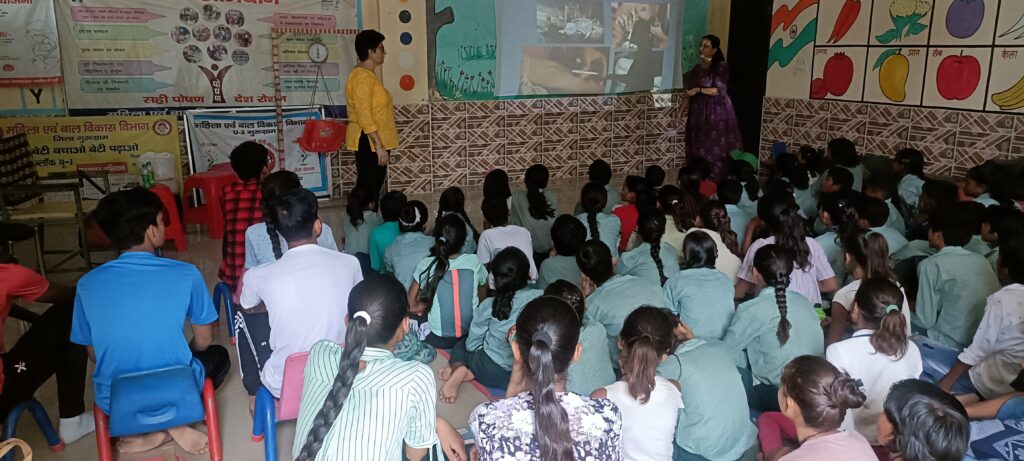From Struggle to Success: The Transformative Effects of Skill Development for Underprivileged Youth
Underprivileged youth refer to young individuals who come from disadvantaged backgrounds, often facing economic, social, and educational challenges. These challenges can hinder their ability to access quality education and training programs, limiting their opportunities for personal and professional growth. Skill development plays a crucial role in empowering underprivileged youth by providing them with the necessary tools and knowledge to break the cycle of poverty and achieve a better future.
This blog post aims to shed light on the importance of skill development for underprivileged youth. It will explore the challenges they face in skill development, the benefits it can bring, the role of access to quality education and training programs, overcoming social and economic inequalities, success stories of underprivileged youth who transformed their lives through skill development, the role of community support, government initiatives and policies, and the challenges and opportunities in the current economic climate.
Understanding the Challenges Faced by Underprivileged Youth in Skill Development
Underprivileged youth face numerous challenges when it comes to skill development. One of the primary challenges is the lack of access to quality education and training programs. Many underprivileged communities lack proper educational infrastructure, including schools, libraries, and vocational training centres. This lack of access limits their ability to acquire essential skills needed for employment and personal growth.
Financial constraints also pose a significant challenge for underprivileged youth. Many families living in poverty struggle to afford education and training programs that can enhance their children’s skills. The cost of tuition fees, textbooks, transportation, and other related expenses can be overwhelming for these families, making it difficult for their children to pursue skill development opportunities.
Social and economic inequalities further compound the challenges faced by underprivileged youth in skill development. Discrimination and bias based on factors such as race, gender, or socioeconomic status can limit their access to opportunities for skill development. These inequalities create barriers that prevent underprivileged youth from reaching their full potential and hinder their ability to break the cycle of poverty.
The Role of Skill Development in Breaking the Cycle of Poverty
Skill development plays a crucial role in breaking the cycle of poverty for underprivileged youth. By acquiring new skills, they can gain better job opportunities that offer higher wages and improved working conditions. This increase in income and financial stability can have a significant impact on their lives, allowing them to provide for themselves and their families, escape poverty, and improve their standard of living.
Moreover, skill development enables underprivileged youth to develop personally and professionally. It equips them with the necessary knowledge, abilities, and attitudes to make informed decisions, communicate effectively, and interact with others. These skills not only enhance their employability but also contribute to their overall well-being and success in various aspects of life.

The Benefits of Skill Development for Underprivileged Youth
Skill development offers numerous benefits for underprivileged youth. Firstly, it promotes personal growth and development. By acquiring new skills, they gain a sense of accomplishment and self-improvement. This personal growth can boost their self-esteem and confidence, empowering them to overcome challenges and pursue their goals.
Secondly, skill development enhances decision-making skills. It equips underprivileged youth with critical thinking abilities, problem-solving techniques, and analytical skills. These skills enable them to make informed decisions in various aspects of life, from choosing a career path to managing personal finances.
Thirdly, skill development improves communication and interpersonal skills. Effective communication is essential for success in both personal and professional relationships. By developing these skills, underprivileged youth can express themselves clearly, listen actively, collaborate with others, and build positive relationships.
The Importance of Access to Quality Education and Training Programs
Access to quality education and training programs is crucial for underprivileged youth to develop the necessary skills for a better future. Affordable and accessible education is the foundation upon which skill development can thrive. It provides underprivileged youth with the knowledge and tools they need to succeed in their chosen fields.
To ensure access to quality education and training programs, there is a need for affordable options that cater to the specific needs of underprivileged youth. Scholarships, grants, and financial aid can help alleviate the financial burden and make education more accessible. Additionally, vocational training programs should be designed to meet the demands of the job market and provide practical skills that can lead to employment opportunities.
Technology also plays a significant role in providing access to education and training for underprivileged youth. Online learning platforms, digital resources, and virtual classrooms can bridge the gap between underprivileged communities and quality education. By leveraging technology, underprivileged youth can access educational materials, participate in online courses, and connect with educators from around the world.
Overcoming Barriers to Skill Development: Addressing Social and Economic Inequalities
To ensure equal opportunities for all underprivileged youth, it is essential to address social and economic inequalities. Discrimination and bias based on race, gender, or socioeconomic status can limit their access to skill development opportunities. Efforts should be made to create an inclusive environment that promotes diversity and equal opportunities.
Addressing discrimination and bias requires raising awareness, promoting diversity and inclusion, and implementing policies that protect the rights of underprivileged youth. Educational institutions, employers, and policymakers should work together to eliminate discriminatory practices and create a level playing field for all.
Furthermore, providing financial support and incentives can help underprivileged youth overcome economic barriers to skill development. Scholarships, grants, and subsidies can make education and training programs more affordable. Financial incentives for employers who hire underprivileged youth can also encourage them to invest in skill development programs.
Empowering Underprivileged Youth Through Skill Development for a Better Future
In conclusion, skill development plays a crucial role in empowering underprivileged youth and breaking the cycle of poverty. By providing access to quality education and training programs, underprivileged youth can acquire the skills needed for better job opportunities, increased income, and improved standard of living. Skill development also promotes personal growth, self-esteem, decision-making skills, and communication abilities.
To ensure equal opportunities for all underprivileged youth, it is essential to address social and economic inequalities, provide access to affordable education and training programs, and leverage technology for greater accessibility. Community support, government initiatives, and policies are also crucial in promoting skill development. Despite the challenges posed by the current economic climate, skill development presents opportunities for underprivileged youth to acquire new skills that are in demand in the changing job market.
With continued support and investment in skill development programs, underprivileged youth can have a brighter future filled with opportunities for personal and professional growth. By empowering them through skill development, we can create a more inclusive society where everyone has an equal chance to succeed.



